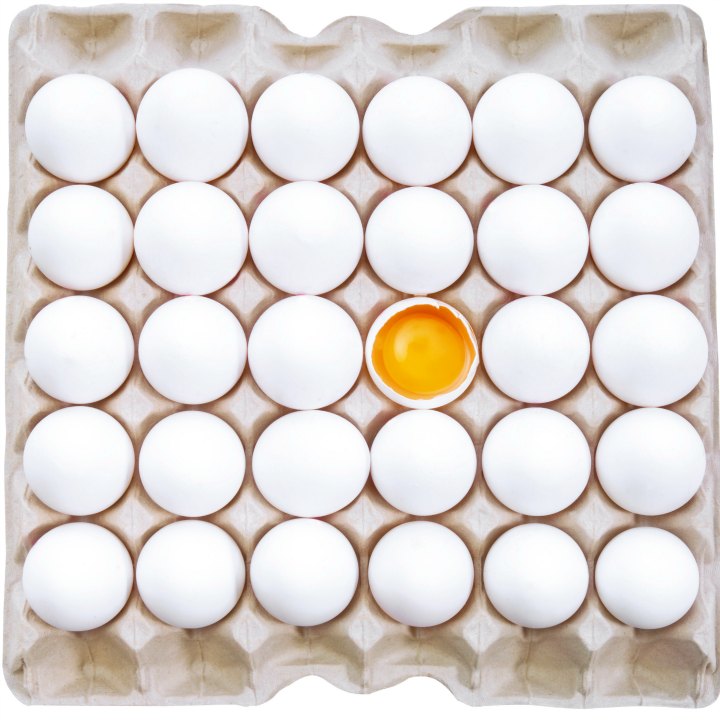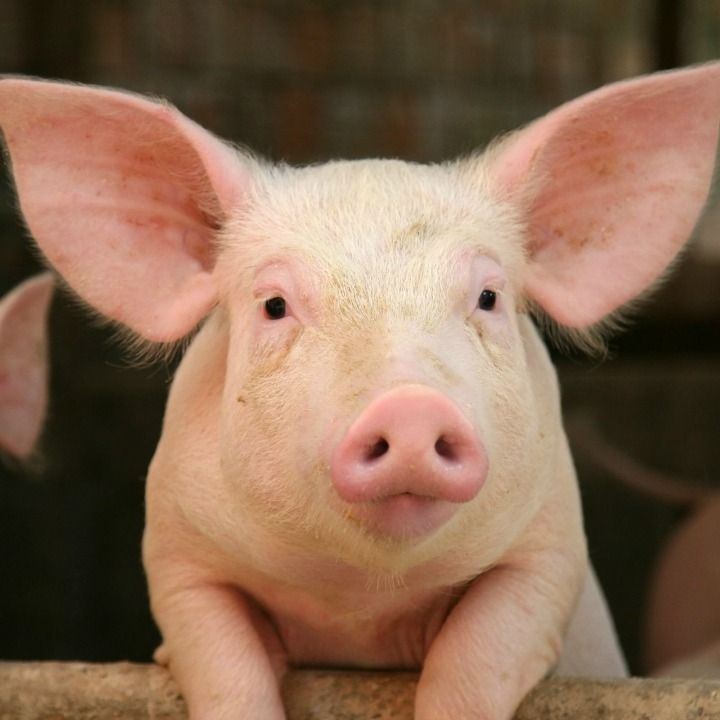Wendy's Animal Welfare Audits
Wendy's Audit History
In the mid-1990s, Wendy’s began routinely auditing supplier animal handling practices. As part of this effort, we hired outside experts to review supplier performance and recommend improvements.
In 1998, we strengthened our existing program by adopting the comprehensive American Meat Institute animal welfare guidelines for beef and pork. These guidelines were developed by Dr. Temple Grandin of Colorado State University, a noted expert in the field of animal behavior, who is a consultant to Wendy’s.
In 2001, Wendy’s established an Animal Welfare Council to regularly review and strengthen the Company’s animal welfare standards. This council consists of senior and mid-level executives representing key areas of our business. This group reviews Wendy’s corporate policies and the performance of our suppliers to achieve full compliance with our stringent standards.
About the Auditing Program
Since 2001, Wendy’s has been using an objective auditing program to monitor, verify and evaluate proper animal handling among our U.S. and Canadian suppliers. This effort is based on extensive research conducted by experts in animal behavior science.
- Suppliers are audited at least annually.
- Audits are both announced and unannounced. Wendy’s protocol requires trained, experienced personnel to audit all approved suppliers for proper, safe and humane handling of all animals.
- These inspections and assessments – conducted by third-party and trained Wendy’s auditors – include a review of housing, transportation, holding facilities and humane processing procedures. All auditors must meet the certification requirements of the Professional Animal Auditing Certification Organization (PAACO).
- The process is evaluated to help verify the animals are handled and harvested with care.
- More than 1,300 audits have been conducted since 2001. Check out our auditing scorecard by clicking here.
- The results of these audits are evaluated with our expert animal welfare advisors, who have extensive experience in humane animal care and handling practices.
- Companies that fail to meet our strict guidelines may be terminated as approved suppliers of Wendy’s.
Read our Blog!
"So, what’s humane when it comes to Animal Welfare? It’s a question that spurred us to begin auditing our suppliers for their animal welfare practices nearly 20 years ago." Since we focus on it a lot, we decided to write a blog about our program. You can read it by clicking here.
Program Highlights
The Animal Welfare Program for cattle, poultry and swine sets Wendy’s apart as an industry leader. Highlights of Wendy’s supplier requirements in this comprehensive program include:
Wendy’s Beef Supplier Requirements
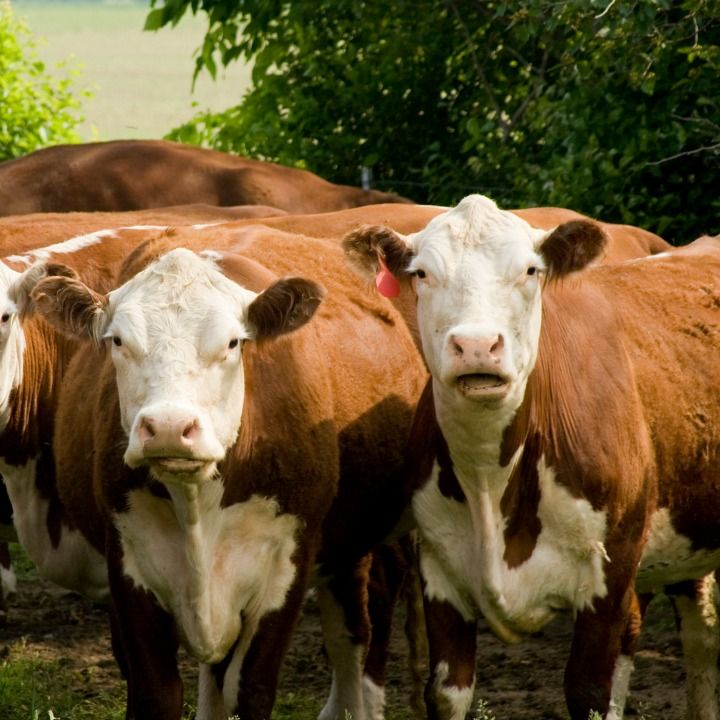
Holding & Handling
- Facilities are designed to prevent heat stress.
- Cattle must be allowed to rest after unloading.
- During movement, the use of non-physical coaxing tools (flags, streamers, etc.) is expected whenever possible.
- The unloading area must be in good condition with no potential injury points (broken gates, sharp metal edges, etc.)
- If cattle are held for 24 hours, they must be fed.
- Facilities are expected to have a plan for animal well-being in extreme weather.
- Clean, potable water must be available to cattle at all times.
- Pen and alleyway floors must be slip resistant and cleaned/bedded daily.
- The pens must allow freedom of movement for the cattle.
- Animals must be insensible prior to being rendered lifeless.
Health & Transportation
- Cattle must be transported and handled in a manner that protects them from weather and prevents injury. Promotes good health and condition.
- Cattle unable to walk unassisted, due to illness or injury, cannot be loaded for transport.
- Trailers must provide cattle with adequate protection from weather-related elements.
- Cattle must have sufficient area to allow freedom of comfortable movement while providing stability and security during transport.
- Trailers must be cleaned on a regular basis as needed.
Our Commitment: Wendy’s is working with its U.S. and Canadian Beef Suppliers to require all cattle feeders to have personnel onsite who certified in the Beef Quality Assurance (BQA) or an equivalent program.
Wendy's Chicken Supplier Requirements
Housing
- Flocks of breeder and broiler chickens must be permitted freedom of movement, while being protected from harm.
- Chicken houses must be well ventilated to maintain good air quality and ensure ammonia levels do not exceed safe levels.
- Floor bedding must be dry and maintained or replaced at a frequency to promote good health of the flocks.
- Food and water must be adequately spaced and positioned to provide easy access.
- Wendy’s Animal Welfare Program has included "laying hens" since 2001. This includes audits of our egg supplier’s bird handling practices.
Health
- All chickens must be transported and handled in a manner that maintains good health and condition.
- Housing should be designed to ensure adequate protection from heat, cold, and any adverse environmental conditions that result in injury or illness to the bird.
- Diets are formulated to promote good health. Water and feed must be available at all times. (Note: In 2002, Wendy’s suppliers eliminated the practice of withholding feed to laying hens to induce molting.)
- All farms should have access to a specialized poultry veterinarian.
Handling & Transportation
- All equipment must be operated to prevent injury to the birds.
- Birds must have sufficient space in transport cages to rest comfortably while providing stability, security and thermal protection during transport.
- Space allocation will be adjusted according to bird size and seasonal weather changes.
- Side panels on transport cages must be used for cold weather protection.
- Transport cages must be properly secured to the trucks to prevent them from falling.
- All transport cages must be properly maintained with properly functioning doors.
- Birds must be in good condition upon arrival at the processing plant.
- Animals must be insensible prior to being rendered lifeless.
Holding Area & Unloading
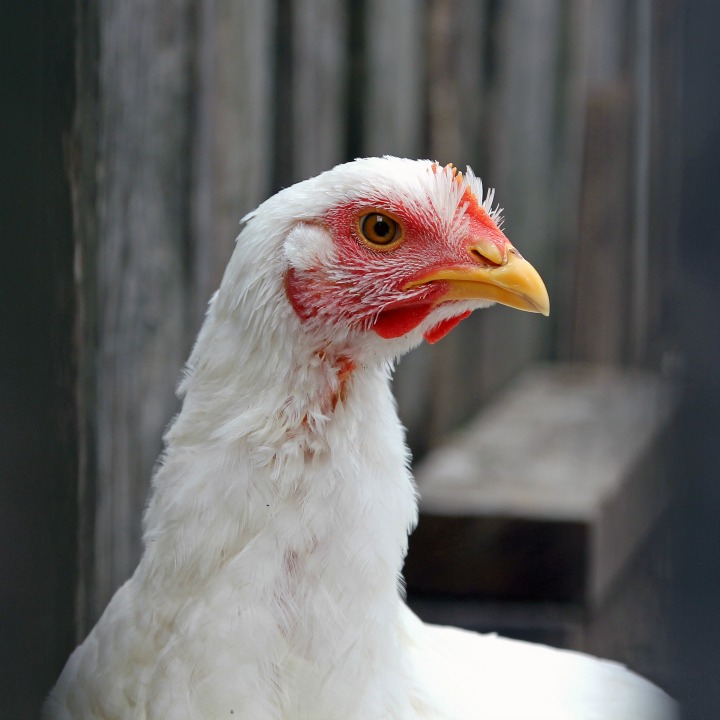
Holding Area
- Holding times will be minimized for the humane treatment of the birds.
- The holding shed must be equipped to maintain a comfortable temperature for the birds.
- The holding area must be equipped with sufficient fans for adequate ventilation within the transport cages.
Unloading
- Cages must be carefully handled at all times to protect the birds.
- Birds must be handled carefully to avoid injury.
- Subdued lighting will be used to help keep the birds calm.
WENDY'S PORK SUPPLIER REQUIREMENTS
Holding & Handling
- Facilities are designed to prevent heat stress.
- Animal holding areas must be bedded if the temperature drops below 32° F.
- Animals must be held after unloading for rest time.
- The unloading area must be in good condition with no potential injury points, such as broken gates, sharp metal edges, etc.
- During movement, the use of non-physical coaxing tools (flags, streamers, etc.) is expected whenever possible.
- If hogs are held for 24 hours, they must be fed.
- Clean potable water must be available to the hogs at all times.
- Pen and alleyway floors must be slip resistant and cleaned or bedded daily.
- The pens must allow freedom of movement for the animals.
- Animals must be insensible prior to being rendered lifeless.
Health, Housing, & Transportation
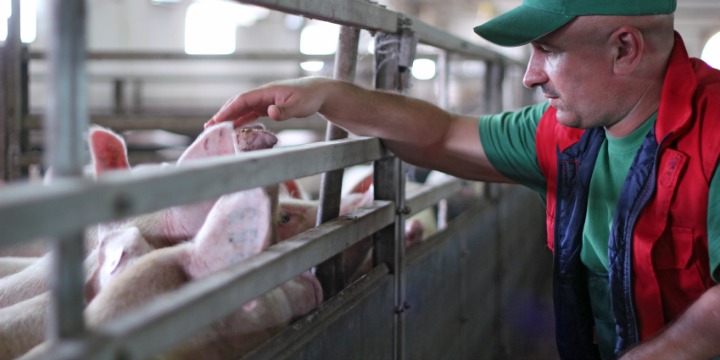
- All swine must be transported and handled in a manner that promotes good health and condition.
- Trailers must provide adequate protection from the elements (wind, rain, heat, cold, etc.).
- When temperature is below 32° F., bedding will be used.
- Animals must have sufficient area to allow comfortable movement, while providing stability and security during transport.
- Trailers must be cleaned on a regular basis as needed.
